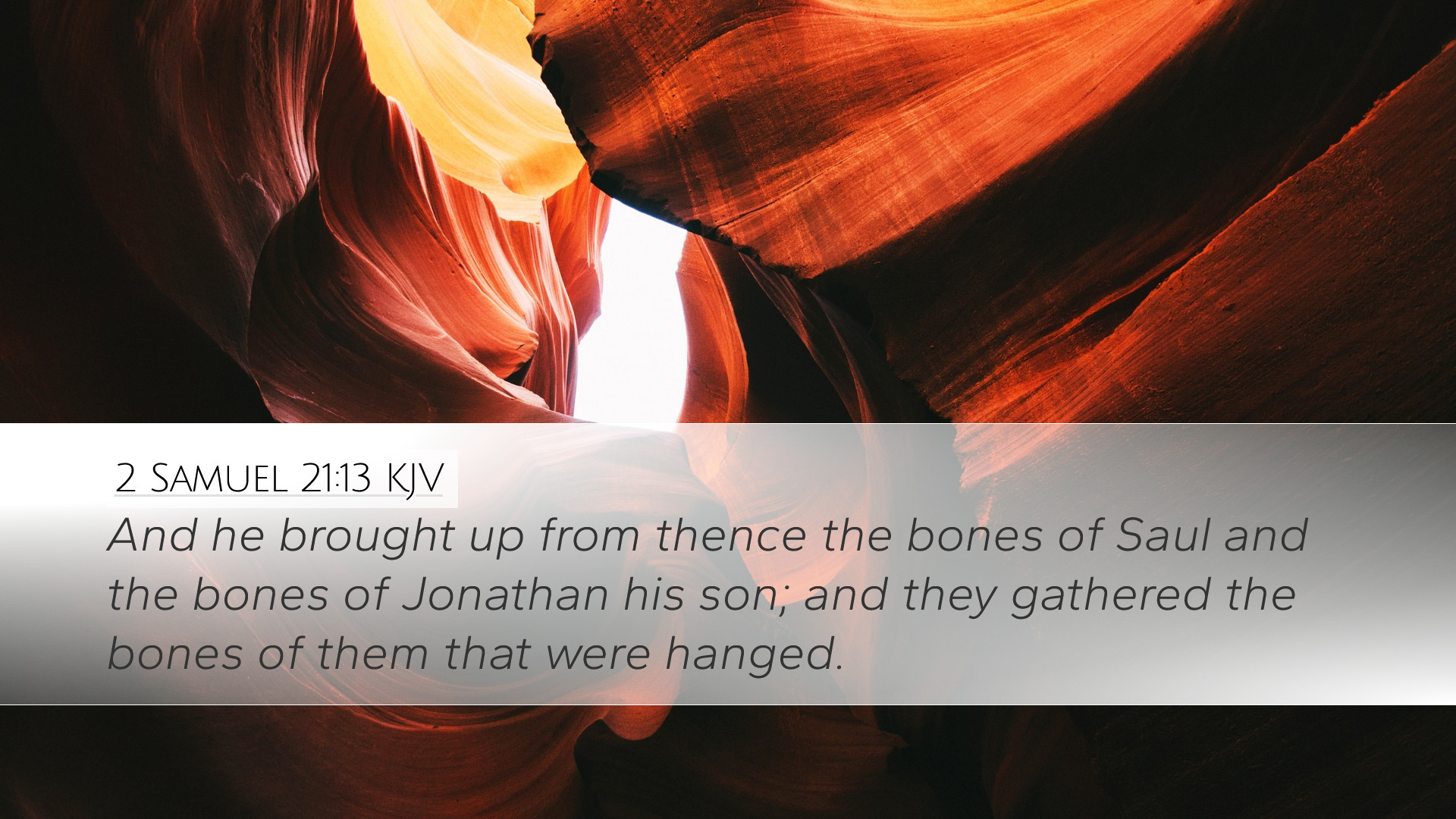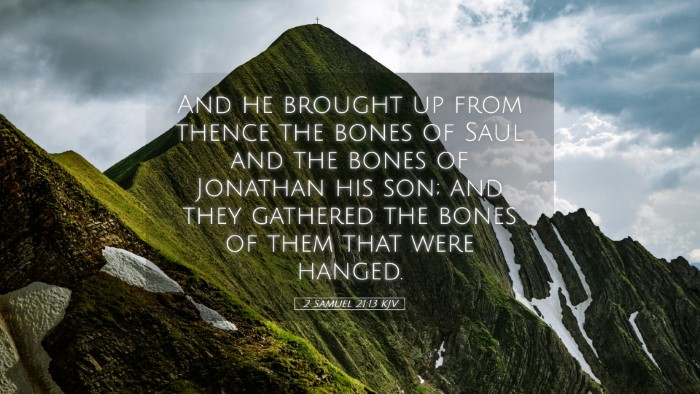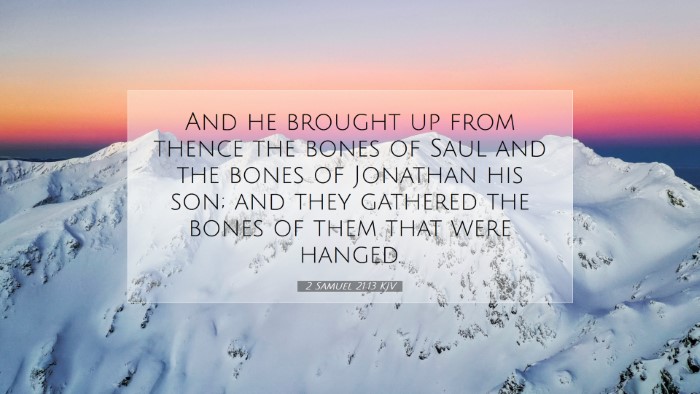Commentary on 2 Samuel 21:13
Verse Context: 2 Samuel 21:13 states, "And he brought up from thence the bones of Saul and the bones of Jonathan his son; and they gathered the bones of them that were hanged."
Introduction
This verse serves as a poignant reminder of the significance of honoring the dead, particularly in the case of Saul and Jonathan, whose lives and deaths carry weight in the narrative of Israel’s history. The act of bringing their bones for burial signifies more than just a physical act; it encapsulates themes of honor, legacy, and restoration.
Commentary Insights
Matthew Henry's Commentary
Honoring the Dead: Matthew Henry emphasizes the importance of honoring the dead, particularly those who once held positions of power. He notes that David's act was a demonstration of respect towards Saul, the anointed king, despite their tumultuous relationship. This event illustrates that even in death, one's legacy should be treated with dignity.
Family and Loyalty: Henry also highlights the bond between David and Jonathan, showing that David's care for Jonathan's remains reflects deep loyalty and friendship. This act symbolizes the enduring connection between their families and the tragic aspects of their intertwined destinies.
Albert Barnes' Commentary
Symbolism of Bones: Albert Barnes notes the significance of bones in biblical times; they represent a person's identity and legacy. By retrieving the bones of Saul and Jonathan, David was not merely performing a burial; he was reclaiming the honor that had been stripped from them through their deaths and their public disgrace.
Restoration of Honor: Barnes elaborates on David's desire to restore what was lost. After their dishonorable deaths, gathering their bones for burial is a restoration of dignity after ignominy. It also signifies hope for the nation of Israel, reminding them of the unity and strength that these leaders once represented.
Adam Clarke's Commentary
Political and Spiritual Implications: Adam Clarke provides a detailed investigation into the political implications of this act. He argues that David’s retrieval of Saul’s and Jonathan’s bones served to reconcile the past. Clarke asserts that David’s actions further solidified his position as king by demonstrating his ability to honor those who came before him, thereby uniting the nation under a symbol of respect and reverence.
Importance of Burial: Clarke also emphasizes the Jewish customs regarding burial. Proper burial was essential in the Hebrew culture as it reflected a person's dignity and was a way to ensure peace for the soul in the afterlife. David's actions can be seen as fulfilling a moral and spiritual obligation to the fallen leaders.
Theological Implications
- Legacy and Memory: This commentary reflects a broader theological motif regarding how we remember those who have passed. The act of remembrance is a powerful element in sustaining communal bonds and historical understanding.
- Redemption and Restoration: The retrieval of bones symbolizes God's ability to redeem what is lost or tarnished through time. David's reverence for Saul and Jonathan underscores the redemption theme present throughout scripture.
- Political Authority and Responsibility: David’s act can also be viewed as a lesson in governance. He not only respects the past but also uses it to unify the nation and establish a righteous rule. This perspective invites leaders to consider their historical responsibilities.
Applications for Modern Readers
- Honoring Our Past: This passage encourages individuals and communities to remember and honor their past, even the difficult aspects, as a way of paving the path toward healing and restoration.
- Cultivating Relationships: It teaches the value of loyalty and love amongst friends and family, inspiring individuals to cherish and uphold relationships in their lives.
- Leadership and Legacy: For leaders today, the narrative serves as a reminder of the importance of legacy and the humility needed to honor those who have gone before us.
Conclusion
2 Samuel 21:13 is rich in theological and practical implications. The commentaries by Henry, Barnes, and Clarke collectively highlight themes of honor, legacy, redemption, and the critical role of historical memory in shaping community identity. For pastors, students, theologians, and scholars, this verse and its surrounding context serve as a reminder to value the past while looking toward a hopeful future.


